From the outdoor terrace on the 11th floor of Long Beach City Hall, Mayor Rex Richardson looks upon the skyline of an imperfect downtown.
Below is a vacant lot where the old city hall was torn down two years ago, now sprouting weeds as it awaits development. In the distance, the 24-story Landmark Square towers above office buildings that last year reported a 24% vacancy rate. Under the eaves of the Billie Jean King Main Library, a few unhoused people huddle.
But Richardson is energized. He is talking about the Los Angeles Olympics.
“I think 2028 is a huge opportunity for our entire region,” he said.
Long Beach Mayor Rex Richardson.
In four years, the Games will arrive in Southern California. Long Beach plans to host eight events — and an unannounced number of Paralympic events — mostly within walking distance of City Hall. (Los Angeles is hosting 16.)
Once again, Long Beach — formerly known as Iowa by the Sea, partly for the Midwesterners who settled here and partly for its provincialism — will step out on the world stage, much as it did for the 1932 and 1984 Olympics.
Two existing facilities, the Sports Area and Marine Stadium, will host handball, rowing and canoe sprints.
Water polo and artistic swimming (the latter still not finalized) will be staged in a temporary pool in a parking lot near the waterfront. Marathon swimming and sailing will take place just offshore, as will the opening leg of the triathlon.
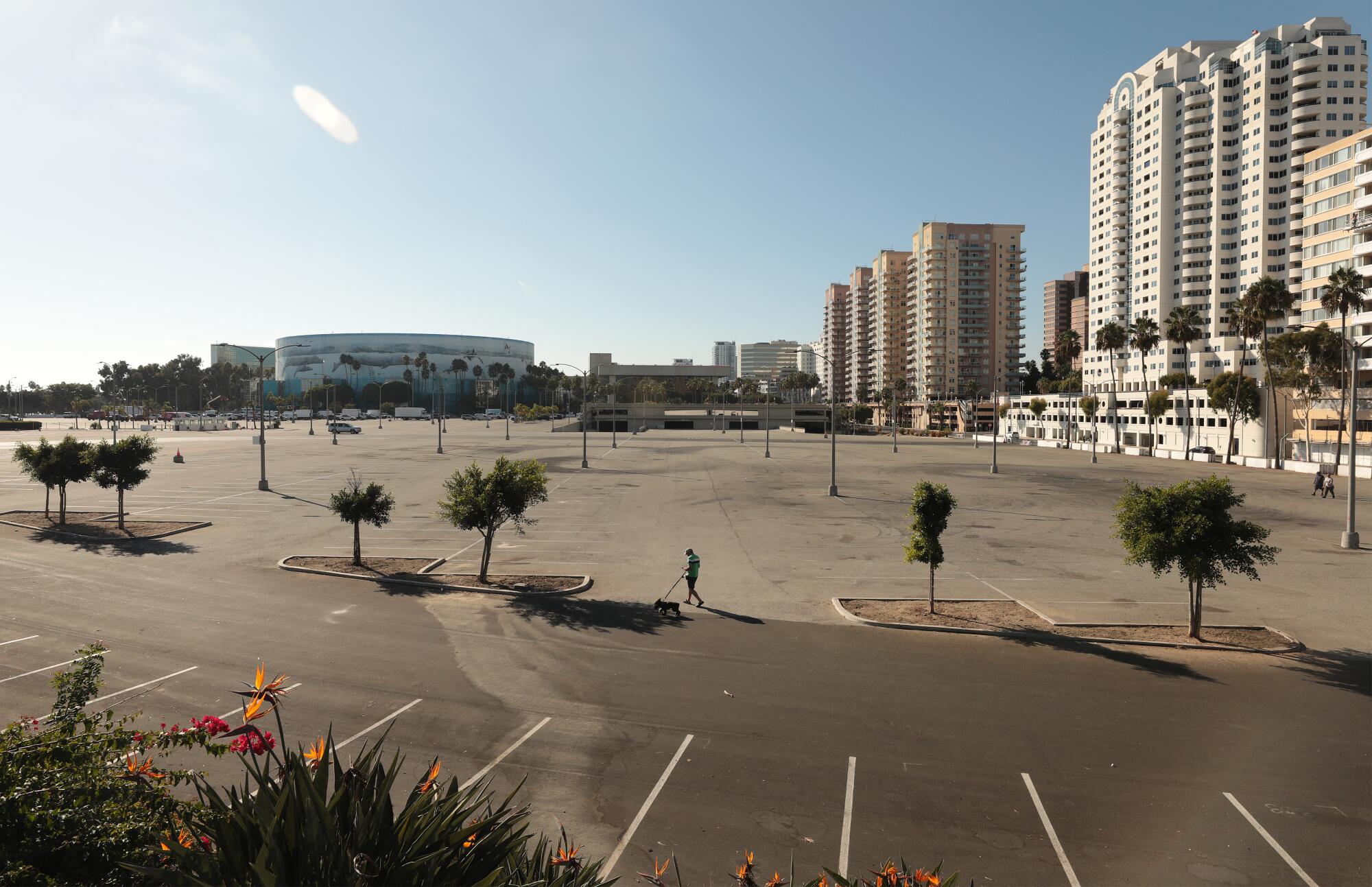
With the addition of a temporary pool, the open-air parking lot of the Long Beach Convention Center will be the location of water polo and possibly artistic swimming during the 2028 Olympics. The city’s sports arena, featuring a mural by Robert Wyland, will host handball.
Beyond the prestige, Richardson sees the Olympics as an chance for Long Beach to redefine itself.
“We all want to build a new economy, post-pandemic, that’s less dependent on, let’s say, office space, and in Long Beach, less dependent on oil,” he said. “This is a big opportunity for us to be a catalyst, in many ways to come out of our shadow.”
Last year, the city unveiled a five-year, $933-million infrastructure and public safety improvement program aimed at addressing long-standing needs. A little more than $210 million of the money will be spent on Olympics-focused projects.
But some caution that even with that commitment, the Olympics could distract from solving the city’s problems.
“The Olympics need to be in service of Long Beach, and not Long Beach in the service of the Olympics,” said Jules Boykoff, author of five books on the Olympics and a professor of political science at Pacific University in Oregon.
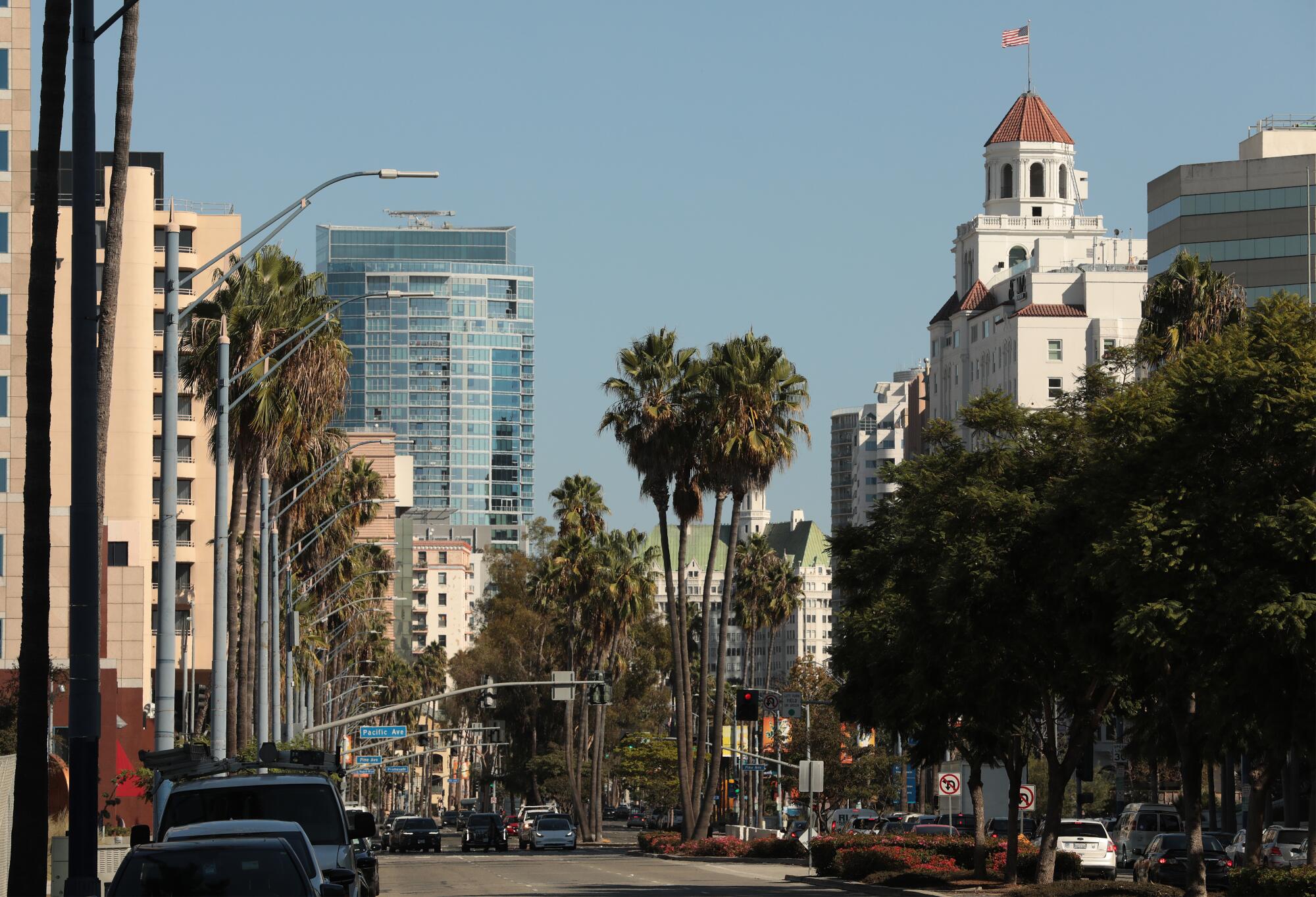
View of West Ocean Blvd in downtown Long Beach, which is second to Los Angeles for hosting the most events during the 2028 Summer Olympics.
Long Beach resident Melinda Cotton is concerned not only about the costs but that the Olympics will shift the city’s attention away from issues like policing, homelessness and the impact of climate change on the waterfront and marinas.
“I don’t oppose the Olympics, but I believe the impacts on our city will be huge and costly,” said Cotton, who produced television news and worked as a field representative for a state assemblymember. “I moved to this city in 1983 and have watched our city government get in over their heads before.”
The Olympics can kick-start projects that have sat dormant on a city’s to-do list. Long Beach’s infrastructure and public safety plan, called Elevate 28, is being positioned as the red carpet for the Games.
The $933 million in spending will include overdue maintenance projects — a total of 178 — ranging from playgrounds and libraries to streets and cultural centers. Some of the money will provide additional funding for a youth shelter, a year-round shelter and housing for homeless residents.
“Right now, the goal is to make sure the city is ready, so visitors can get around easily,” said Eric Lopez, director of public works. “I see this as a puzzle. We’re putting it together piece by piece.”
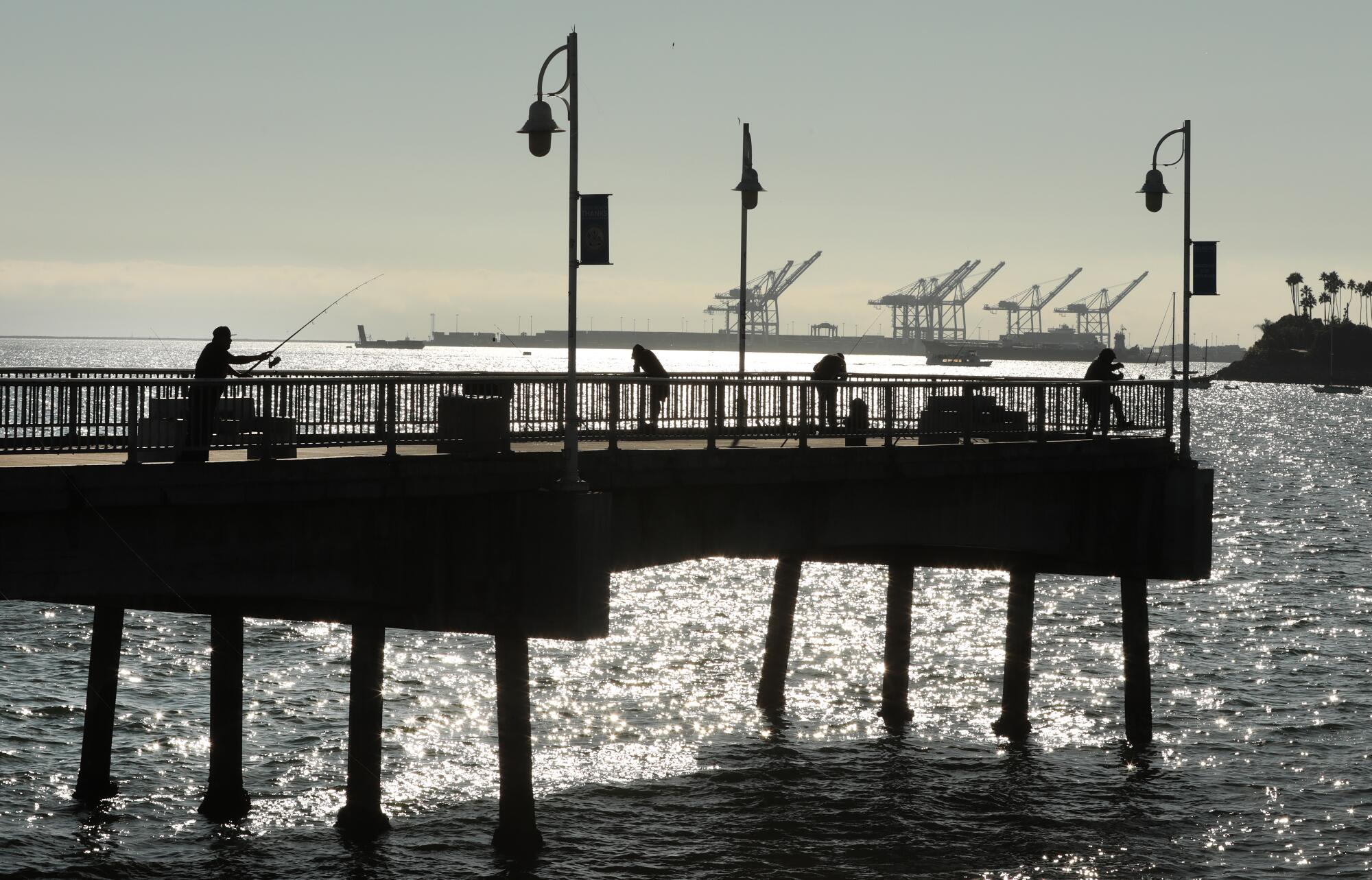
The water near the Belmont Veterans Memorial Pier will be the site for sailing, marathon swimming and the first leg of the triathlon during the 2028 Summer Olympics.
The roughly 23% of the money that will be spent on Olympics-related projects includes improvements to the city’s pier for spectators and the Queen Mary for accommodations, replacing a bridge over the Los Angeles River and designing a new municipal pool.
The $933 million will come from a variety of sources — the Port of Long Beach, the Monsanto settlement involving polluted waterways and L.A. Metro Measures R and M. Close to a third will be from a city sales tax approved by voters for improvements in infrastructure and public safety.
The approach is a radical change for Long Beach, which for decades could count on oil production to help pay for many civic services. But the pandemic and a drop in prices depressed oil revenues, and the city has passed a Climate Action Plan to taper its reliance on oil.
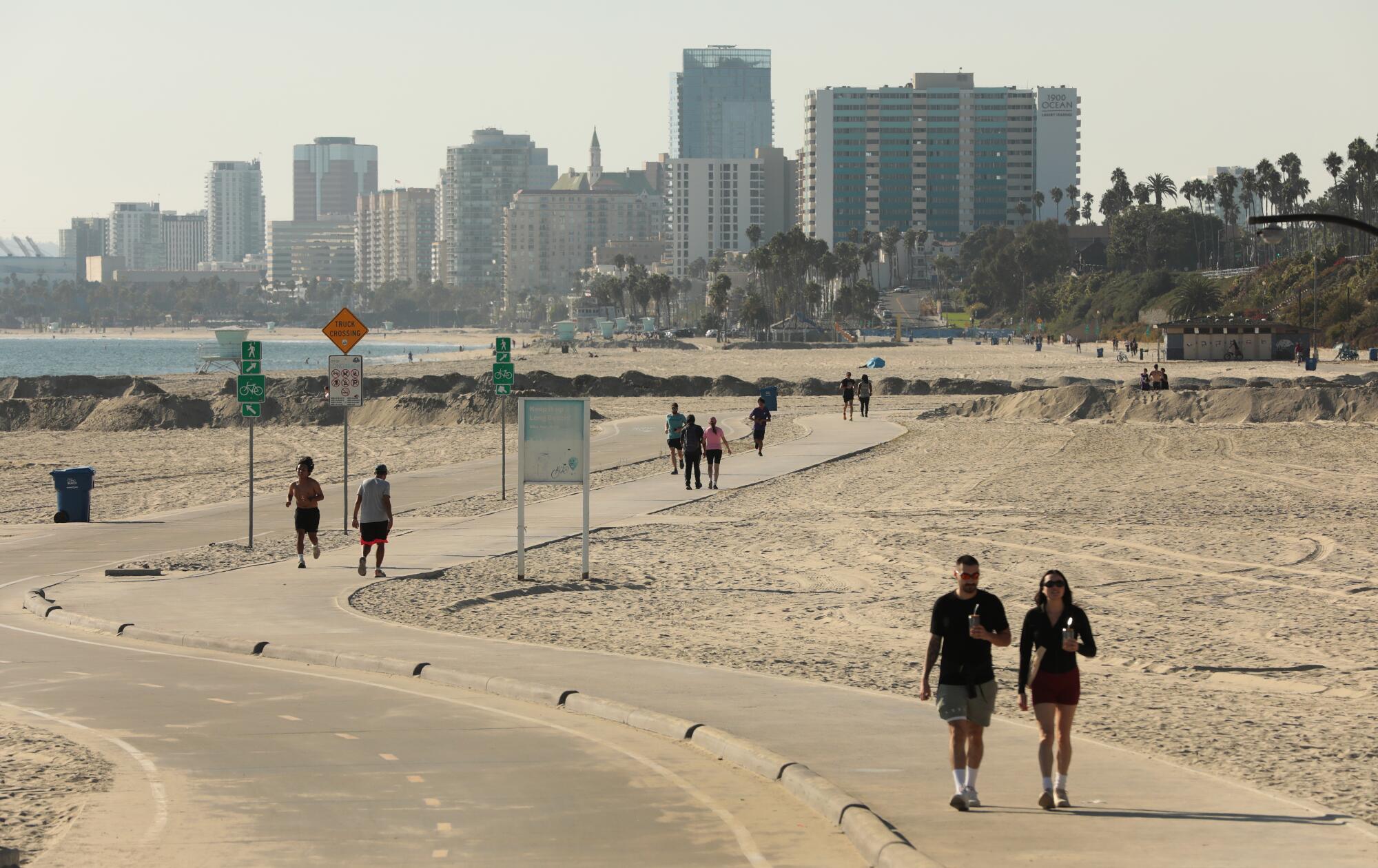
The beach, adjacent to downtown Long Beach, will overlook marathon swimming, sailing and the first leg of the triathlon during the 2028 Olympics.
The visitors who pour in for the Olympics will not only generate short-term benefits but help the city “think about what tourism looks like, how we can increase tourism to be a more sustainable revenue driver for our city,” Richardson said.
Long Beach is negotiating with the Olympics organizing committee, LA28, to reach agreements on a range of details, including how much the city will charge for the use of the five venues where the events will be held.
In May, the city council signed the first of these agreements — a basic commitment to host the events. By contrast, Santa Monica is proceeding more cautiously as it debates the value of the Games over the prospect of a financial loss.
Other cities hosting Olympic events include Carson and Inglewood, with Pasadena, Temecula and Oklahoma City still pending.
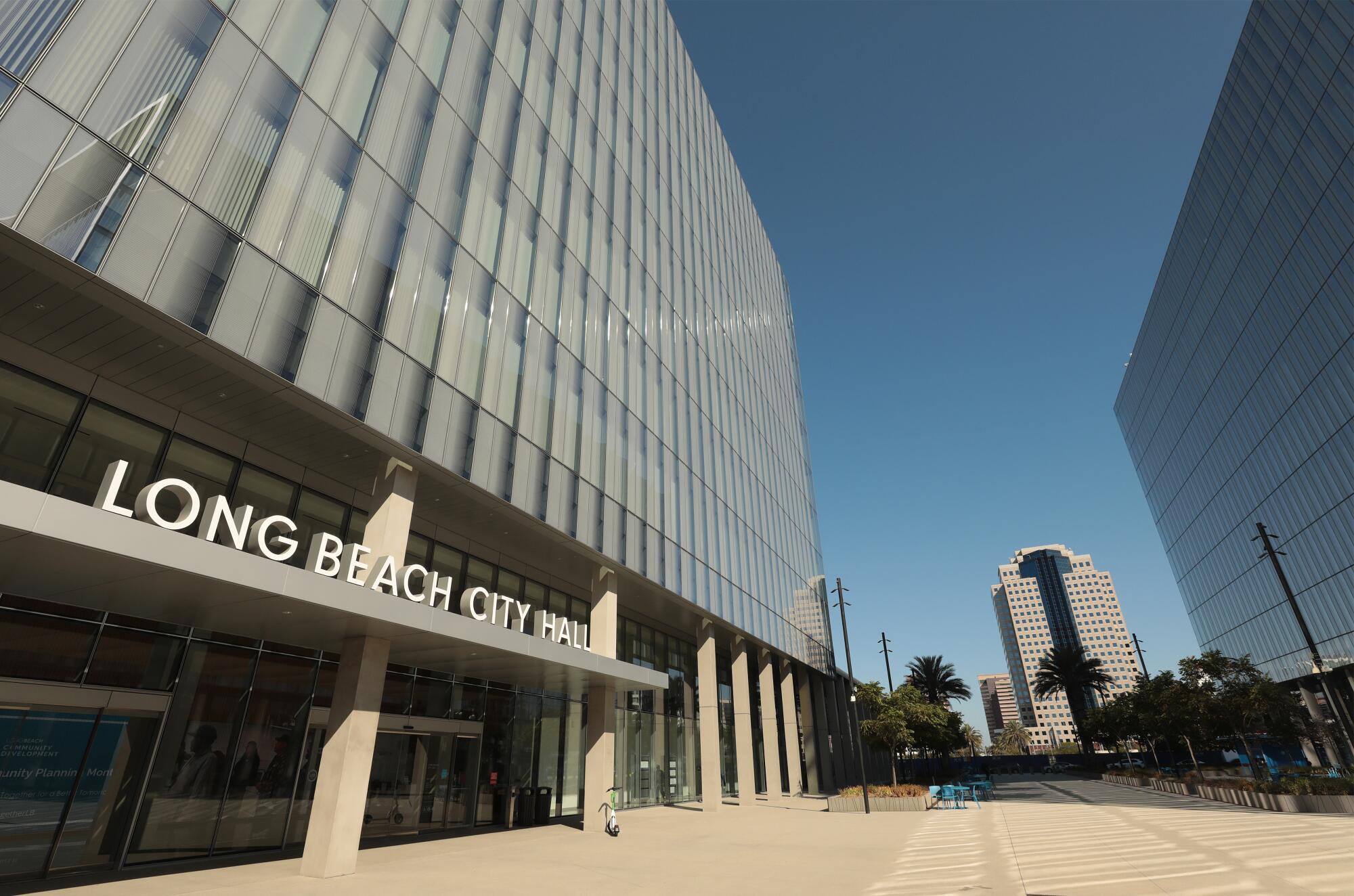
By agreeing to host at least seven events during 2028 Olympics, Long Beach hopes to see economic benefits that will help define the city’s future.
Separate negotiations will determine how much LA28 will reimburse Long Beach for extra services — such as trash collection and traffic management — that are above “normal and customary” for the city.
According to John Harper, chief operating officer for LA28, organizers are confident they will be able to reimburse Long Beach for the cost of these additional city services. Agreements will be negotiated each year between now and 2028, allowing for cost estimates to become more specific and accurate.
Richardson, whose term ends in 2026, is calling for “full cost recovery,” but the phrase is “cagey,” said Boykoff, and “does not align with the recent history of the Olympics.” Recent Games — Rio de Janeiro in 2016, Athens in 2004, Sydney in 2000 — have exceeded their budgets.
As a nonprofit, LA28 must raise money to host the Games. Originally budgeted for $5.9 billion, the cost has increased to $6.9 billion, of which $616 million will be held aside to be spent on a contingency basis. Los Angeles and California each have pledged $270 million if the Games go over budget.
Part of Long Beach’s risk will come if the city and LA28 underestimate the cost of extra services, said Andrew Zimbalist, a professor emeritus of economics at Smith College. And LA28 may not end up with enough cash to reimburse cities.
“The organizing committee is saying that they will reimburse the venue cities for their expenses, provided that they have a surplus,” said Zimbalist. “I think the cities — when supporting these events — should make the assumption that there will be no surplus.”
Richardson said he isn’t looking to make a profit through usage fees for the event venues. Instead, he is hoping the financial benefit will come from spectators staying, eating and shopping in Long Beach.
“If our businesses make money because of increased tourism, if our hotels make money, we get indirect benefits through sales tax and transit occupancy tax,” he said.
Whether Olympic tourism will benefit the city is a matter of debate. Some economists argue that any boost to the local economy is offset by price increases and congestion that depress normal tourist volumes.
And creating long-term benefits, as Richardson hopes to do, will not be simple.
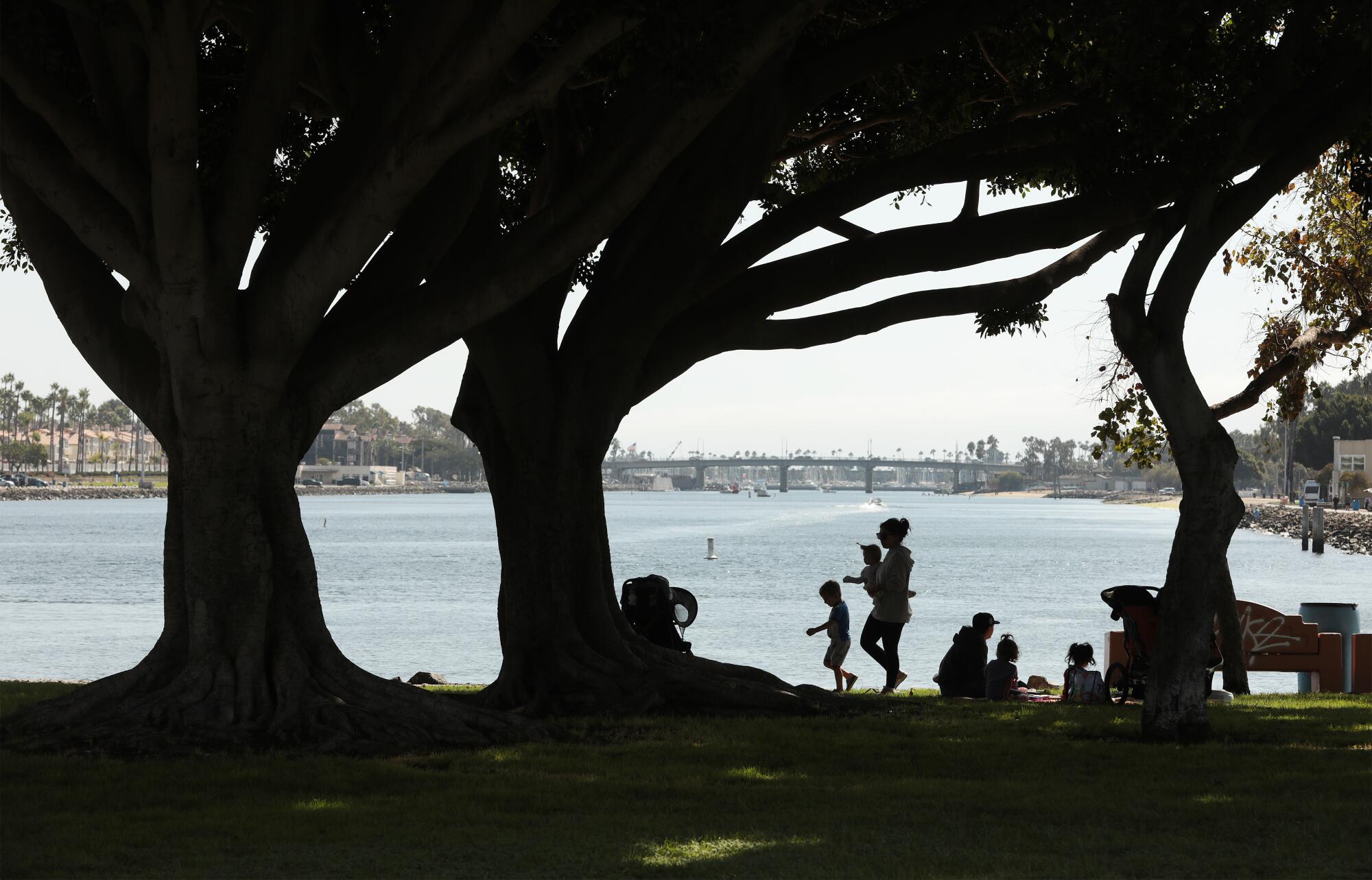
The Long Beach Marine Stadium was the site for rowing competition during the 1932 Olympics and will host canoe sprint and rowing during the Games in 2028.
Long Beach is not positioned to be a tourist and entertainment destination, considering all that nearby L.A. has to offer, said Christine Jocoy, a professor of urban geography at Cal State Long Beach who has lived in the city since 2004.
She would prefer to see the city attract new employers and residents.
“The Olympics symbolizes a lot of wonderful things,” she said, “but I personally would not put a lot of weight behind the idea that that’s going to help transform Long Beach.”

